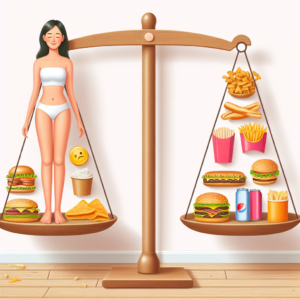Introduction
In the realm of diet and nutrition, caffeine emerges as a prominent player with a substantial influence on energy levels and appetite control. Widely consumed in various forms such as coffee, tea, and energy drinks, caffeine is often lauded for its stimulating effects on the central nervous system. This article delves into the dual role of caffeine in energizing diets and influencing appetite, exploring its mechanisms, benefits, and potential drawbacks.
The Science Behind Caffeine
Caffeine, a naturally occurring psychoactive substance, primarily exerts its effects by blocking adenosine receptors in the brain. Adenosine is a neurotransmitter that promotes relaxation and sleepiness. By inhibiting its action, caffeine effectively increases neuronal firing and the release of other neurotransmitters like dopamine and norepinephrine, leading to heightened alertness and energy.
Energizing Diets with Caffeine
Boosting Metabolic Rate
Caffeine is renowned for its ability to enhance metabolic rate. Studies have shown that caffeine can increase the number of calories burned at rest, known as the resting metabolic rate (RMR). This effect is particularly pronounced in lean individuals, making caffeine a valuable component in weight management strategies.
Enhancing Physical Performance
Athletes and fitness enthusiasts often turn to caffeine to boost physical performance. Caffeine mobilizes fatty acids from fat tissues, making them available for use as energy, especially during endurance exercises. Moreover, caffeine has been shown to improve muscle contraction strength and reduce the perception of effort, allowing for longer and more intense workouts.
Improving Cognitive Function
The cognitive benefits of caffeine are well-documented. It enhances focus, attention, and reaction time, which can be particularly beneficial for individuals following calorie-restricted diets that may lead to mental fatigue. By improving mental clarity and reducing perceived effort, caffeine can indirectly support adherence to diet plans.
Influencing Appetite with Caffeine
Appetite Suppression
One of the intriguing effects of caffeine is its potential to suppress appetite. Although the exact mechanisms are not fully understood, caffeine is believed to influence hormones involved in hunger regulation, such as ghrelin and leptin. By reducing hunger signals, caffeine can aid in controlling calorie intake, making it a valuable ally in weight loss efforts.
Altering Taste Perception
Caffeine’s impact on taste perception is another facet of its role in appetite regulation. Some studies suggest that caffeine can alter taste receptors, potentially reducing the appeal of sugary and high-calorie foods. This alteration in taste perception can steer individuals towards healthier food choices, thus supporting dietary goals.
Potential Drawbacks of Caffeine Consumption
Overconsumption and Dependency
While caffeine offers numerous benefits, excessive intake can lead to adverse effects. High doses of caffeine may cause jitteriness, anxiety, and insomnia. Furthermore, regular consumption can lead to dependency, with withdrawal symptoms such as headaches and fatigue when caffeine intake is reduced.
Impact on Sleep Quality
Caffeine’s stimulating effects can interfere with sleep patterns, particularly if consumed in the afternoon or evening. Poor sleep quality can negatively impact metabolism and appetite regulation, potentially undermining dietary efforts. It’s essential for individuals to be mindful of their caffeine intake timing to avoid sleep disturbances.
Caffeine in the Context of Keto Diets
Compatibility with Ketogenic Principles
The ketogenic diet, characterized by high-fat and low-carbohydrate intake, aims to shift the body’s metabolism towards fat utilization. Caffeine can complement this dietary approach by further enhancing the mobilization of fatty acids. Additionally, the appetite-suppressing effects of caffeine can be particularly beneficial for those on a keto diet, where controlling hunger is crucial for maintaining ketosis.
Caffeine Sources and Keto-Friendly Options
For individuals following a keto diet, choosing caffeine sources that align with dietary restrictions is vital. Black coffee, unsweetened tea, and certain energy drinks without added sugars are suitable options. However, it’s essential to avoid sugary syrups and high-carb additions that could disrupt ketosis.
Strategies for Incorporating Caffeine into Diets
Moderation and Timing
Moderation is key when incorporating caffeine into any diet. Individuals should aim to consume caffeine in quantities that enhance energy and focus without leading to dependency. Additionally, timing caffeine intake strategically, such as in the morning or before workouts, can maximize its benefits while minimizing sleep disruption.
Personalized Approaches
Each individual’s response to caffeine can vary, influenced by factors such as genetics, tolerance levels, and overall health. Therefore, adopting a personalized approach to caffeine consumption is crucial. Monitoring how caffeine affects energy levels, mood, and appetite can guide adjustments to optimize its role in a diet plan.
Conclusion
Caffeine, with its multifaceted effects on energy and appetite, holds a significant place in dietary strategies. Its ability to boost metabolism, enhance performance, and suppress appetite makes it a valuable tool for individuals seeking to manage weight and improve overall well-being. However, mindful consumption, tailored to individual needs and preferences, is essential to harness its benefits while avoiding potential drawbacks. By understanding and leveraging caffeine’s role, individuals can enhance their dietary efforts, whether on a ketogenic diet or any other nutritional plan.











Add comment